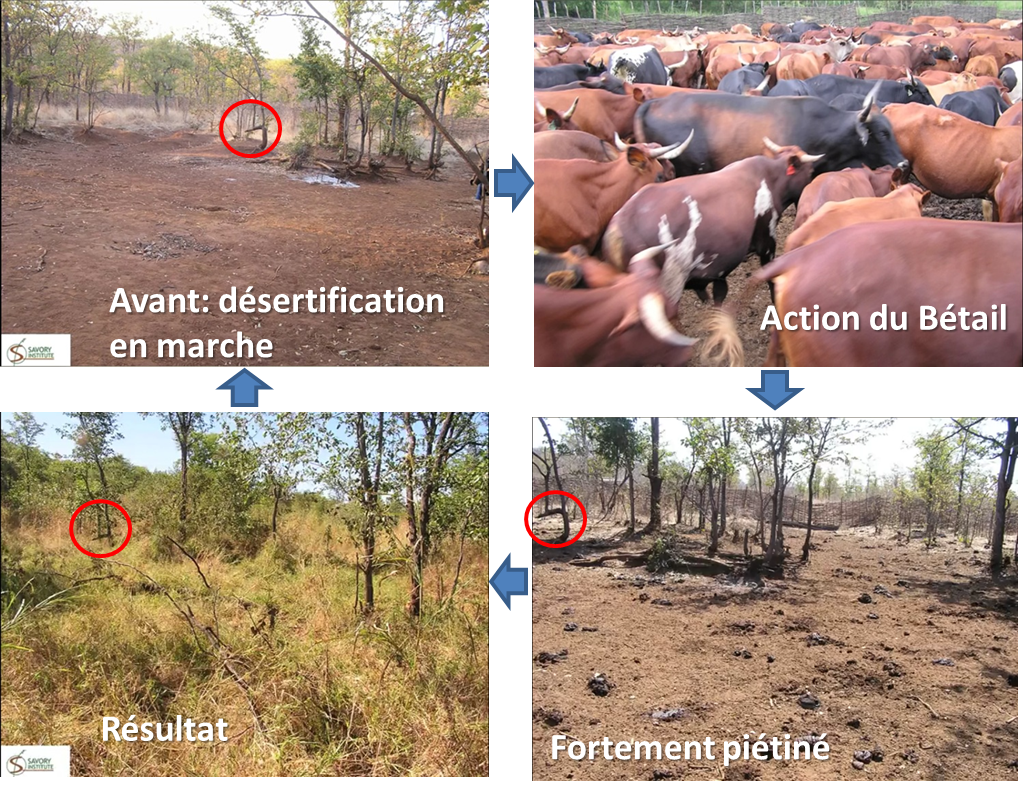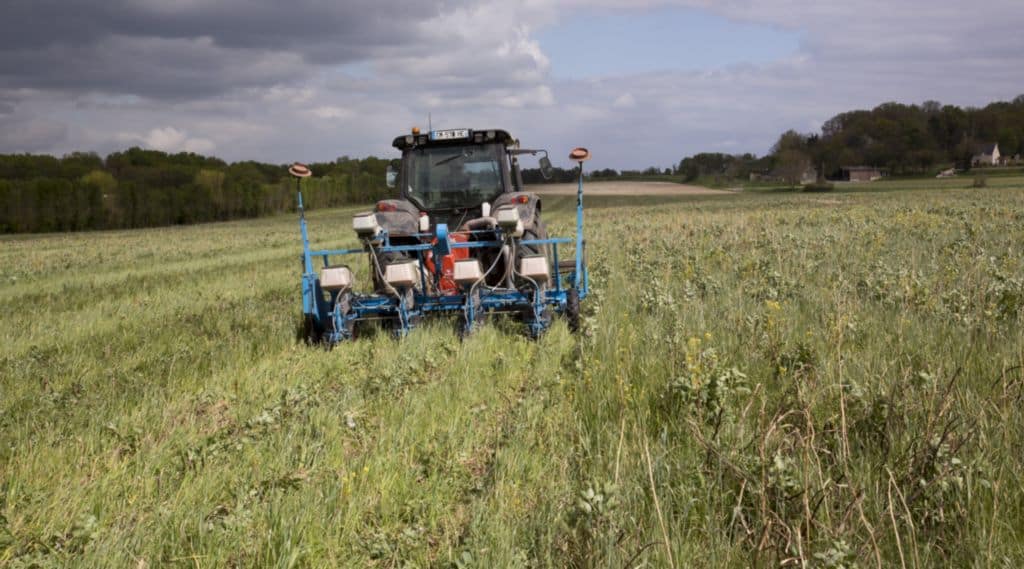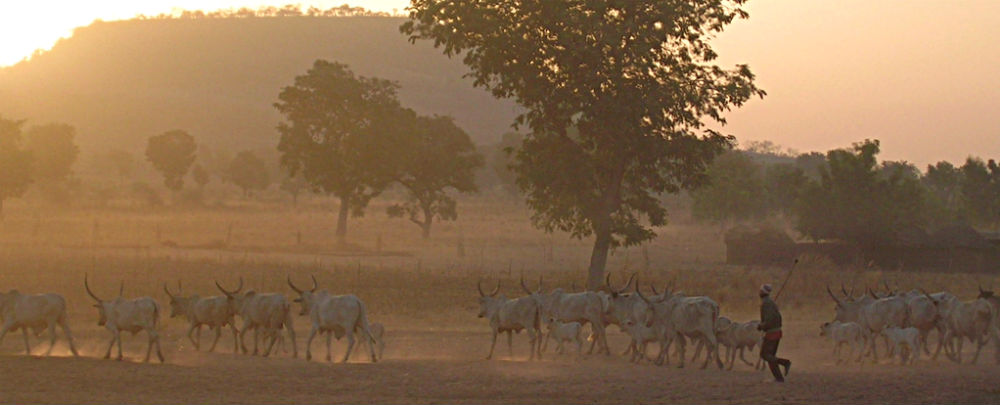AGROECOLOGY
- THE BREEDING TO SAVE THE PLANET.
In a TEDx
conference in 2013, the famous Zimbabwean biologist and ecologist Allan Savory
explained how he was led to recognize his own and dramatic mistakes, to accept
what, for him, was inconceivable: the breeding is the best solution to fight
against desertification.
Furthermore,
stopping desertification and re-vegetating 50% of desertified grasslands,
according to him, would allow to return to the atmospheric situation of the
pre-industrial era. In other words, we would stop and we would solve global
warming.
Image 1: Before: desertification in progress
Image 2:
cattle action
Image 3:
strong trampling
Image 4:
result
But this
return to the pre-industrial atmospheric situation, as he explains and
demonstrates, can only be done thanks to the breeding. And what is even more
surprising is that the larger the flocks, the more beneficial their effect is,
provided that they are properly managed.
These
techniques, applied correctly, also have the potential to give back a life to
degraded soils, to stop their erosion, to increase their potential of storage
of rain water, in short, to give back hope to the populations most weakened by
these changes.
I
am thinking in particular of my dear Dogons of Mali, of whom I have already
spoken to you, and for whom I continue to seek solutions (http://culturagriculture.blogspot.com/2017/09/114-agriculture-of-world-dogon-country.html).
I recommend
you to see this conference to the end, in these times of doubts about the
causes of climate change, and about available solutions, but especially at a
time when breeding is so challenged by movements opposed to any form of animal
exploitation.
However,
Allan Savory explains, by proving it thanks to the numerous experiments carried
out in the world on millions of hectares of meadows in desertification, how the
breeding is the solution to go back.
(You can add
subtitles in several languages by clicking on the gear ⚙
I
want to add that the preservation of grass in agriculture is a technique with
comparable effects on soils and climate. It's already widely used by farmers in
production methods called conservation agriculture, sowing under plant cover,
or simply grass cover on perennial crops. These techniques are developing
rapidly because their effectiveness is well established. Millions of hectares
around the world have been converted.
Picture:
https://www.entraid.com/wp-content/uploads/2016/04/semis-mais-couvert-sdsc-semis-direct-monosem.jpg
Yet, they
are gravely threatened with abandonment because of political decisions
perverted by an extremist ideology that is falsely interested in the real
problems of the environment. The probable prohibition in a short time of
glyphosate, whose alleged dangerousness is only a political weapon to fight against
GMOs, will put a stop to these fundamental techniques to fight for soil
preservation and against global warming climate.
Alternatives
to glyphosate do not exist yet. It therefore seems unacceptable to me that this
herbicide is thus condemned in the short term and against the opinion of all
serious and recognized scientists of the planet, without viable solutions being
proposed to the users.
Picture: https://static.ladepeche.fr/content/media/image/zoom/2010/12/16/photo-1292489715433-1-0.jpg
The
consequences of this prohibition without alternative will be very serious for
the climate, because by forcing farmers to return to plowing, they will release
into the atmosphere billions of tons of CO2 and methane, currently imprisoned
in unplowed agricultural soils.
How
can one, on the first hand, applaud Allan Savory for his work on the fight
against desertification and soil erosion, and on the fight against global
warming, and on the other hand condemn the agricultural techniques that produce
the same effects?
Is there an
influential politician really
concerned about the future of the planet, able to say out loud that this purely
political choice, without any serious scientific basis, is a gross mistake?
Desertification
also threatens a large number of agricultural soils in all climates.
Cropping
techniques to combat this phenomenon must be promoted, and incentives and
training must be put in place to speed up farmers' conversions.
However, by
demonizing agriculture, we get the opposite effect, we stop progress and we
force a more conservative backtracking.
And it's
very serious for the future.
Re-greening
desertified areas is a good goal, but blocking solutions that prevent the
degradation of agricultural soils will significantly reduce the scope.




Aucun commentaire:
Enregistrer un commentaire